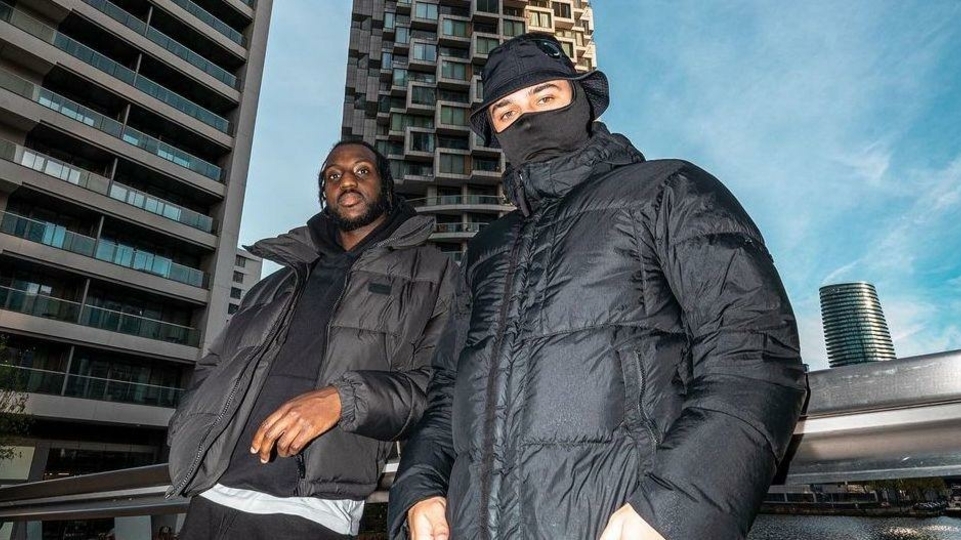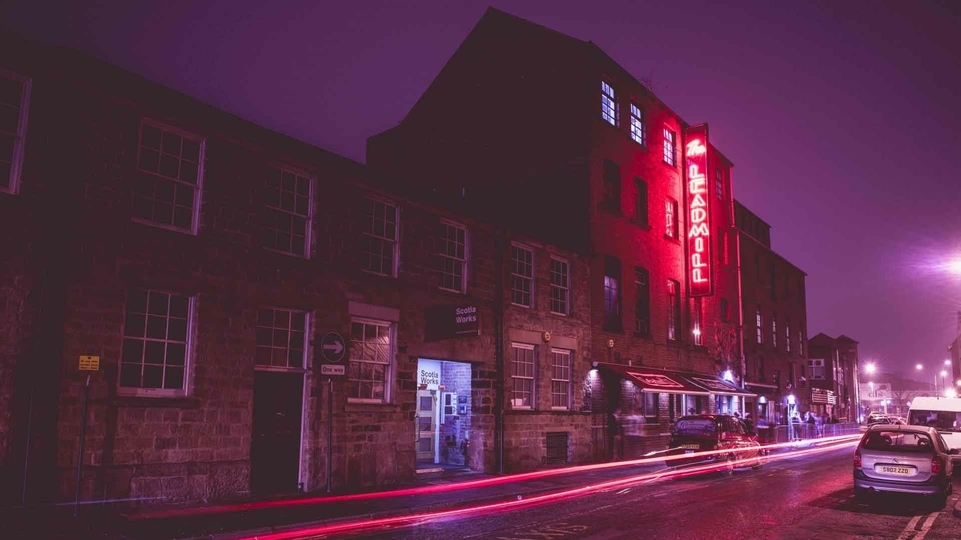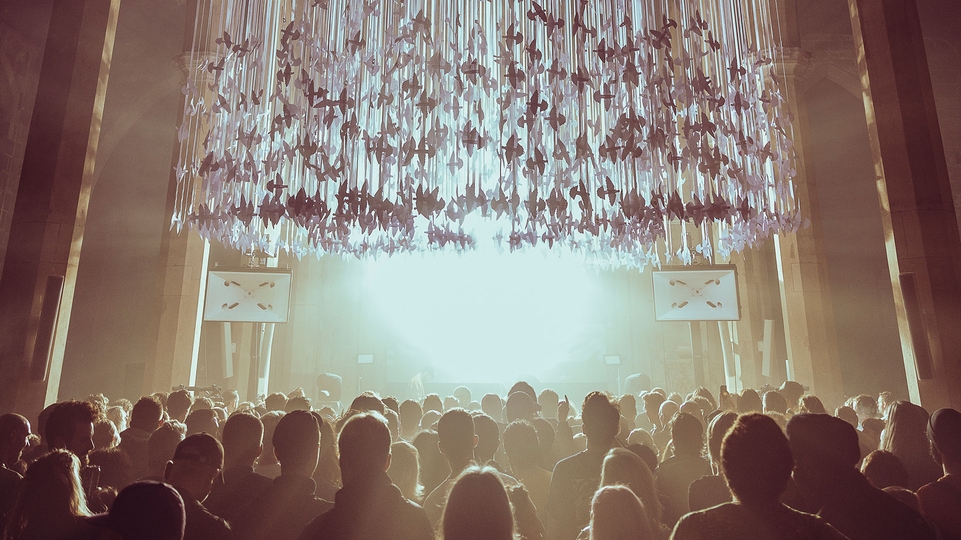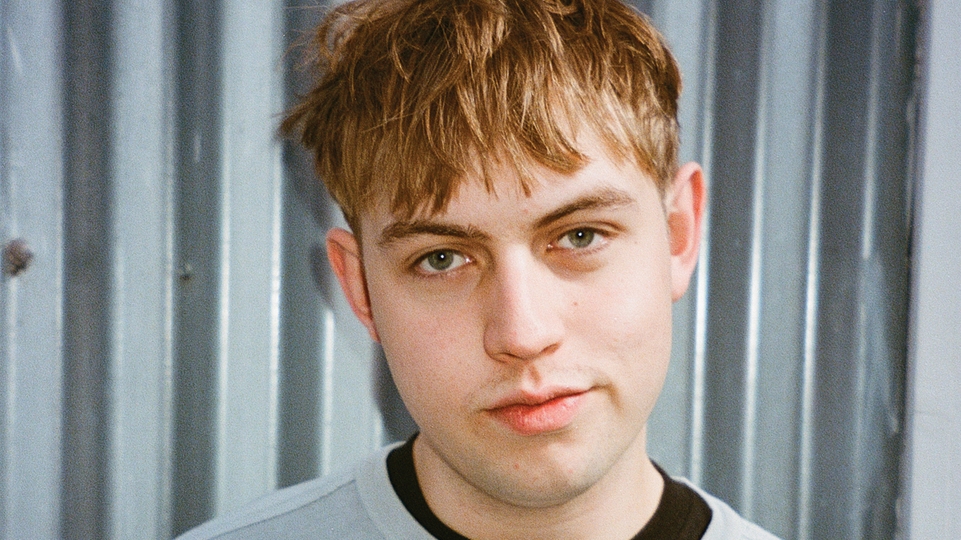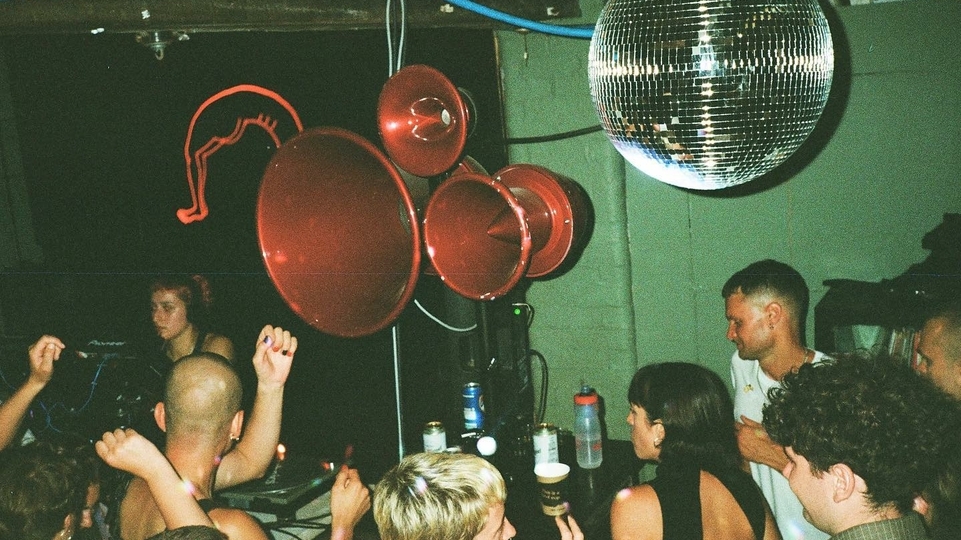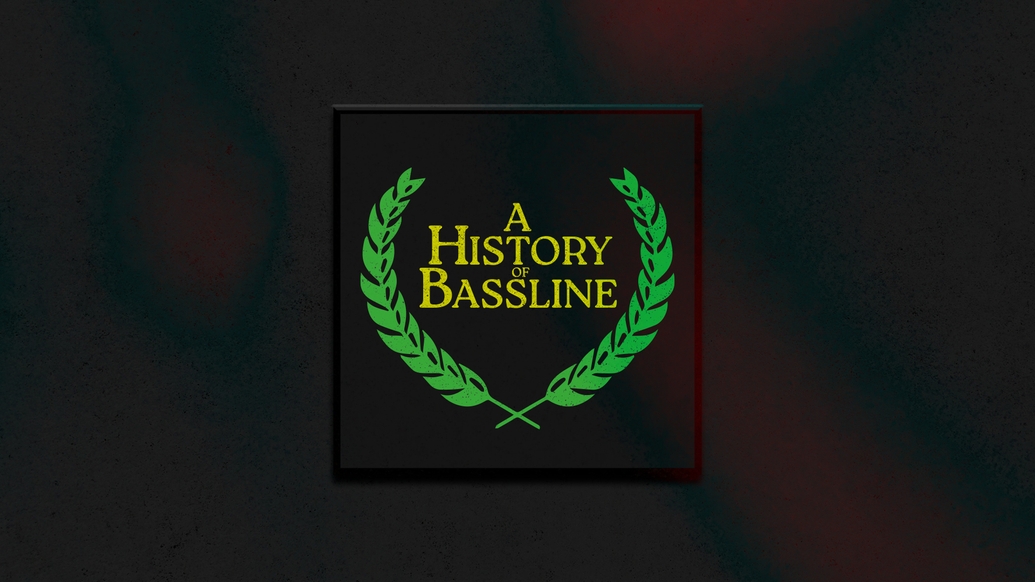
A history of bassline
From its beginnings in Yorkshire clubs to becoming a nationwide dance music phenomenon and chart success, the bassline sound has survived and thrived, despite the efforts of the police and club licensing authorities. Matt Anniss charts its rise, fall, resurgence and influence on a new generation of DJs, producers and ravers
A quarter of a century ago, a record slipped out on Rumour Records that would change the course of UK dance music history. Created by a Sheffield-based trio of DJs and producers called High Jinx a year before its release in 1997, ‘California Dreaming’ was a bouncy, organ-heavy house cover of The Mamas & The Papas song of the same name. It featured, on its flipside, a dub that would prove hugely inspirational to DJs and dancers in the North of England.
The dub, crafted by a DJ called Shaun Banger Scott and his production partner Jonathan Collings, was weightier and more driving, peppered with Korg M-1 organ stabs and a warped and wild, speed garage style bassline. It had been created with the dancefloor of one club in mind: Niche, on Sidney Street in Sheffield; an infamous after-hours spot that boasted a committed, energetic and up-for-it crowd.
Within 12 months of Scott and Collings’ dub appearing in stores, bassline house — or as it was sometimes called in honour of the club that spawned it, ‘Niche music’, or simply ‘Niche’ — had spread to other after-hours venues in the North. Over the years and decades that followed, bassline’s popularity would swell in the Midlands and, eventually, elsewhere across the UK, all the while evolving to become an integral part of wider UK dance music culture.
“The attitude towards it has definitely changed since I started DJing,” says Local Action/2 B Real artist and NTS resident Finn. “I think because it was 4/4 and fast, many people used to lump bassline in with things like happy hardcore, donk and scouse house. Because of that, it wasn’t given credit for being as arresting, innovative and sonically brutal as it is. It should be viewed as an important step in the hardcore continuum that’s as important as dubstep or grime.”
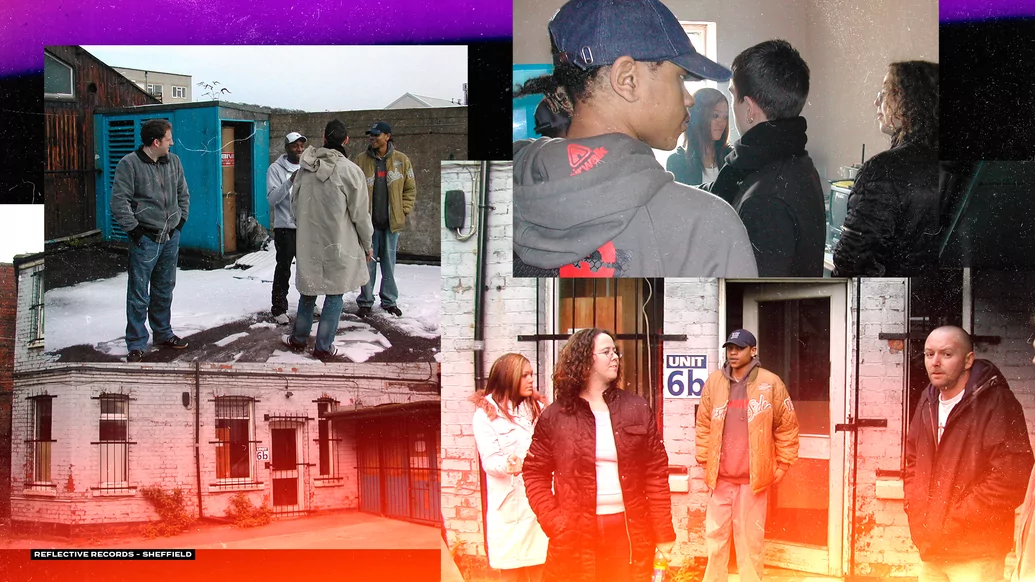

“I’d compare it to the Wigan Casino and what they did with Northern Soul. People were coming from all over the country on coaches, every Friday and Saturday night” — Shaun Banger Scott, Niche resident
To understand the emergence of bassline, we need to travel back further in time than the release of ‘California Dreaming’. In the mid 1990s, Yorkshire boasted some of the most popular and well-known club brands in the UK at the time, including Love To Be, Hard Times, Back To Basics, Gatecrasher and Up Yer Ronson. Licensing laws at the time dictated that most clubs had to shut at 2am, with only a handful of venues in larger cities being awarded 24-hour licences — and even then, they couldn’t sell alcohol.
Niche — which had opened in 1992 under the ownership of a businessman known as ‘the Godfather of Sheffield’, Steve Baxendale — was the most renowned of these after-hours venues, initially with a house-heavy playlist that attracted the most energetic and party-hearty dancers. Crucially, the team of resident DJs — and, it should be noted, other local DJs who fed into the development of bassline house, such as Naughty Nick — were not shy of dropping speed garage tunes in their sets, with a bootleg remix of Double 99’s ‘Ripgroove’, featuring Tina Moore’s belting vocal from ‘Never Gonna Let You Go’ over the top, being a Niche favourite.
“Double 99’s ‘Ripgroove’ had a massive influence on the scene up North,” Niche regular turned producer Big Ang explained on NTS’ 2021 Evolution Of Garage special. “We just carried that on because we wanted more sounds like that.”
But dancers at Niche didn’t just want the pitched-up grooves and big basslines of speed garage. They also wanted rushing piano riffs, familiar vocals, heavy organ basslines, nasty rave noises, atmospheric pads and the prototype ‘dark garage’ remixes of Armand Van Helden. Scott and his contemporaries weren’t shy of creating their own exclusive, Niche-friendly remixes that fit the bill and, as a result, the club became a go-to destination for clubbers from all over the region in the late ’90s.
“I’d compare it to the Wigan Casino and what they did with Northern Soul,” Scott says. “People were coming from all over the country on coaches, every Friday and Saturday night. You had every creed, colour and race all there for one reason: the music.”
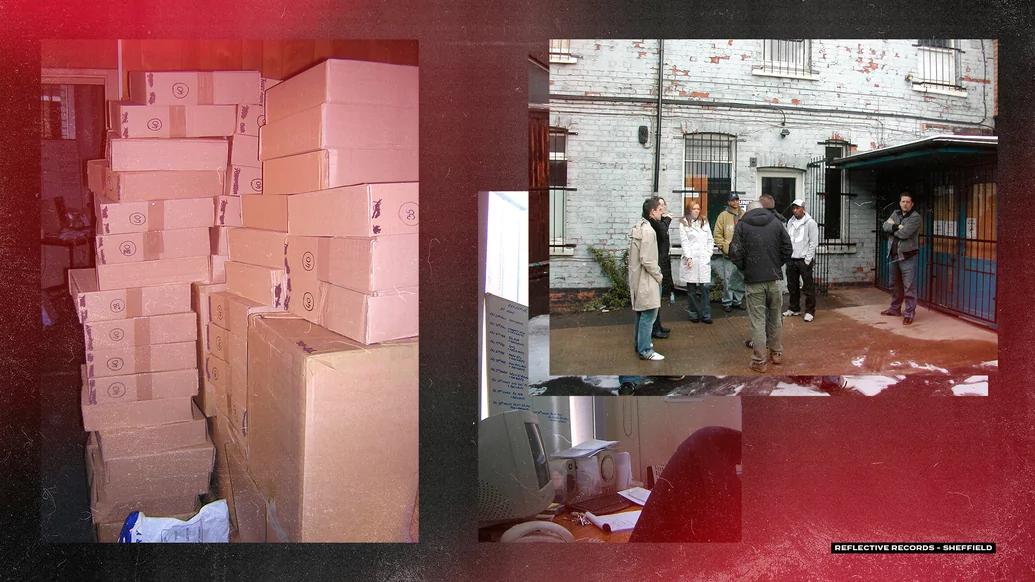

Scott’s comparison with Northern Soul has some merit. Like their predecessors in the 1970s, Niche’s resident DJs scoured the country for records that their rivals didn’t have, then covered up the labels to keep others off the scent. And as with Northern Soul, a wildly popular venue inspired clubs in other towns and cities to follow their musical template. Throw in the popularity of tape recordings of Niche’s resident DJs, which the club sold at the bar, and you can see how bassline house rapidly spread across Yorkshire.
In fact, it was a tape, most likely one from Niche, that inspired one of the club’s West Yorkshire rivals — Bradford’s first after-hours venue, Boilerhouse — to abandon its usual mixture of commercial house and happy hardcore.
“My secretary Sarah said, ‘Why don’t you try a bit of bassline’, and gave me this tape,” explains Boilerhouse founder and later resident DJ Dean Loynes, AKA Phat Fingerz. “I had a listen, and a lot of it was remixes of old dance tunes, but more on the R&B side. So, I decided to put on a bassline night and it just flew. By the end of ’98 Boilerhouse was the hottest club in West Yorkshire.”
Devotees of Leeds’ after-hours outlet Casa Loco, whose regular DJs Danny Bond and Marc Leaf would become cult heroes within the city’s parallel bassline scene, would probably argue with that assertion. Either way, it wasn’t long before dance music record shops in the county cottoned on to the growing popularity of the style.
“I went into Disc Records and asked about these old school-sounding, organ-heavy records, and Richard Gill who ran it said, ‘We don’t sell that stuff anymore’,” Loynes remembers. “Within a few months people were going in there asking for ‘Boilerhouse music’, and Gilly asked me to start doing monthly mix CDs.”
The network of record shops actively supporting the scene expanded in the early 2000s, with a growing volume of bassline house white labels appearing in key outlets such as Disc, Tunes Worldwide in Leeds, and Studiobeatz and Reflex in Sheffield. The latter’s entrepreneurial owner, Martin Leverton, launched his own Reflective nights in competition with Niche; in 2002, he also launched a label of the same name.
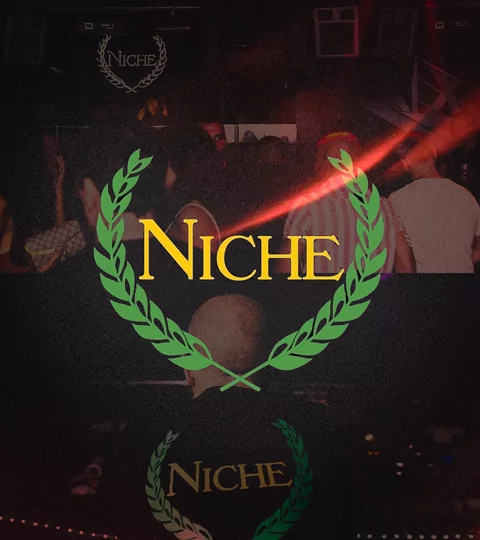
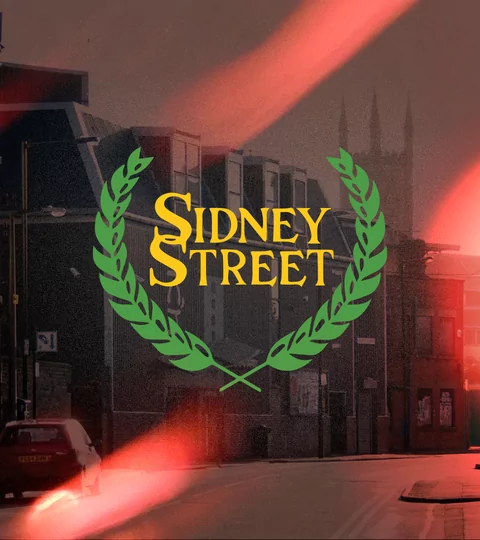
Reflective and its various offshoots prioritised a mixture of bassline house updates of classic cuts, and original songs, largely created by local bedroom producers such as Big Ang, former drum & bass creator Booda, Studiobeatz co-founder Jon Buccieri and DJ Veteran. All of these were heavily road-tested pre-release, giving Leverton and company exclusives to rival those championed by Scott and Duggan at Niche.
“With Reflective, Martin was ahead of the curve,” says David Baker, who joined the label as manager in 2003. “Inevitably, people started picking up on the success of our releases and bassline house generally, and copying it.” Reflective was responsible for bassline’s first chart hit: Big Ang’s cover of Deborah Cox’s ‘It’s Over Now’, which hit No.29 on the UK singles chart in 2005, a year after it had become a scene anthem.
The chart success of ‘It’s Over Now’ was no surprise given events within bassline house in 2004. In the spring, an article appeared in the now-defunct dance music monthly IDJ profiling the growing scene. What made it particularly important — aside from the fact that it was the first time that bassline house had been covered nationally — was its author’s decision to shine a light on what was happening in Birmingham, a city whose relationship with the style was by then rivalling Yorkshire in terms of numbers at events and the volume of records being produced.
Russell Deeks’ feature largely overlooked Niche (“in hindsight, that was an error”, he says), but profiled Reflective as well as the numerous key DJs, pirate radio stations, events and record labels that were spearheading Birmingham’s bassline house movement.
“It took us a while to get it together, but we wanted to show people how we do it in Birmingham,” Jump Records co-founder Joe Hunt explained in the 2004 article. “The sound is definitely a bit different here than it is in Sheffield — there’s more of a house influence, and that makes for a happier vibe.”
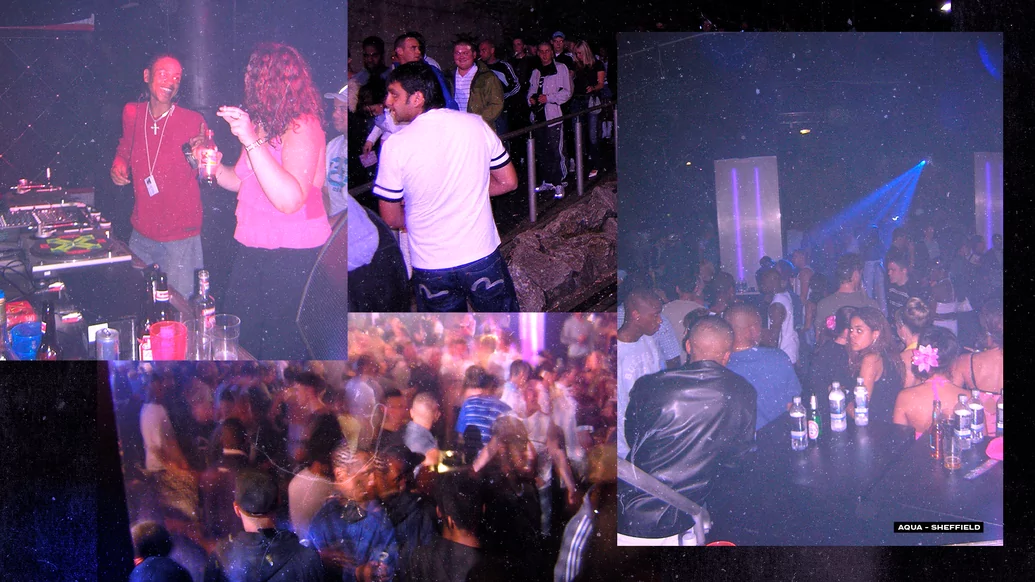
While the regional variations were subtle, they were certainly there; while Birmingham labels Ecko, Jump and Boogaloo, and mainstay artists such as Hunt, Davey Boy, Danny Wynn, Macca and Ste Savage, tended to prioritise the house-influenced end of the style, Yorkshire was wedded to a sound that preferred heavier, warped basslines and other musical elements shared with the emerging 4/4 style of garage.
Over the years that followed, bassline and 4/4 would become interchangeable — or at least the divisions between the styles so blurred to become meaningless — and it would be the more aggressive warped basslines of Yorkshire, rather than the organ basses preferred in some parts of the Midlands, that would dominate.
Leading the charge to popularise bassline was a young DJ and producer from Huddersfield, who began a residency on Radio 1Xtra in 2004. Already known in the scene thanks to Niche’s resident DJs playing his productions, DJ Q would rapidly become the most significant figure in bassline, reaching parts of the UK that had previously been unaware of the sound.
“When I started on 1Xtra, I was just playing everything I liked,” DJ Q explains in a previously unpublished 2019 interview. “Then I started getting more music sent to me by local bassline producers, so I played those. The sound then became better known, and that inspired more people to start making bassline music.”
This is key for the growth of a sound. For scenes to thrive, they not only need an accessible outlet and focal point — such as a national radio show — but also DJs who are willing to champion unknown producers. Shaun Banger Scott and Jamie Duggan did this, but DJ Q’s national profile allowed him to launch the careers of far more bassline producers — especially those not already active in the scene.
“In the very early days of Twitter, I decided to message DJ Q,” says Flava D, now one of the UK scene’s most recognised names but then a bedroom producer from Bournemouth. “To him, I was just some random newcomer, but he passed on his email address and I sent him some tunes. He started playing almost everything I sent him. When he gave me my first 1Xtra play, I was like, ‘Maybe I could have something good here’. So, I kept making more bassline and garage.”
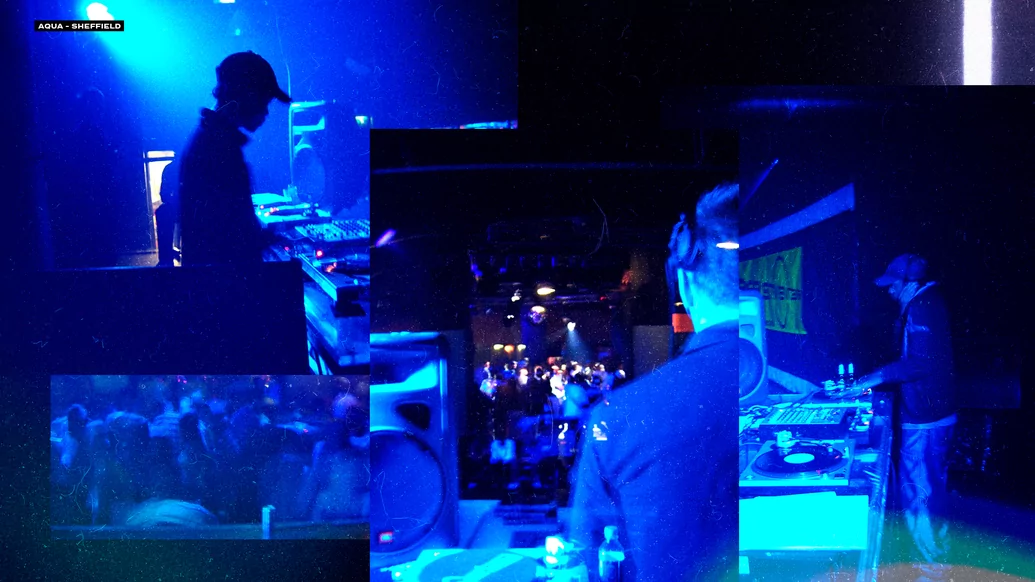

Flava D is a part of bassline’s second generation — DJs and producers who were teenagers in the mid-to-late 2000s and whose passion for bassline went hand in hand with a love of grime. Many also had an obsession with important online forums such as Basscuts and the then-popular online platform Channel U.
Coupled with more London 4/4 garage productions from the likes of D.B.X, D’n’D and D’Explicit becoming scene favourites — another great example of the blurring of boundaries between different styles of UKG — the influence of grime on bassline, and later the openness of grime artists to allow bassline remixes, marked a profound shift in the style. Grime-influenced tracks from Bradford’s TS7 and Nottingham’s Mr Virgo were important outliers, but it was a 17-year-old from Harehills, Leeds, who would take it to the next level.
“I was just making beats for my mates to hear and then I joined a grime crew when I was 15,” T2 explained in a rare interview with DJ Mag back in 2019. “When I started to go to a club called Heaven and Hell, I started to hear bassline beats in there that were sick and everyone was vibing to. I felt like I could bring something different to the table so that these same people would be going mad to my music. I was kind of right about that.”
One night in early 2007, he spent four hours turning an R&B song he’d made with local singer Jodie Aysha into a bassline banger; by September of the same year, ‘Heartbroken’ had become an anthem across the country and risen to No.2 in the UK Singles Chart. Early the following year, Ministry Of Sound released their first ‘Sound Of Bassline’ mix CD, and the sound was finally part of British dance music’s mainstream. It was a huge moment for a scene that had long been treated by some as “silly northerner music”, as Finn puts it.
This mainstream breakthrough came at a price, though. Niche owner Steve Baxendale had been locked in a long-running battle with South Yorkshire Police that pre-dated the murder of his brother, Mick, outside the venue in 1998. In 2005, the club’s original Sidney Street venue was shuttered after a high-profile raid known as Operation Repatriation, whose offensive name offered an indication of the racial profiling used by authorities in attempts to crush the bassline scene in Sheffield.
Police argued that the club was “attracting an undesirable clientele from all areas of the Black gangland wars, who were bringing their bad ways to the city and cementing relationships with people from other major cities”, Baxendale said in an interview with Vice in 2014. “They raided on the grounds of a ‘crack house’ closure, because [punters] were able to buy drugs in the club, they said."
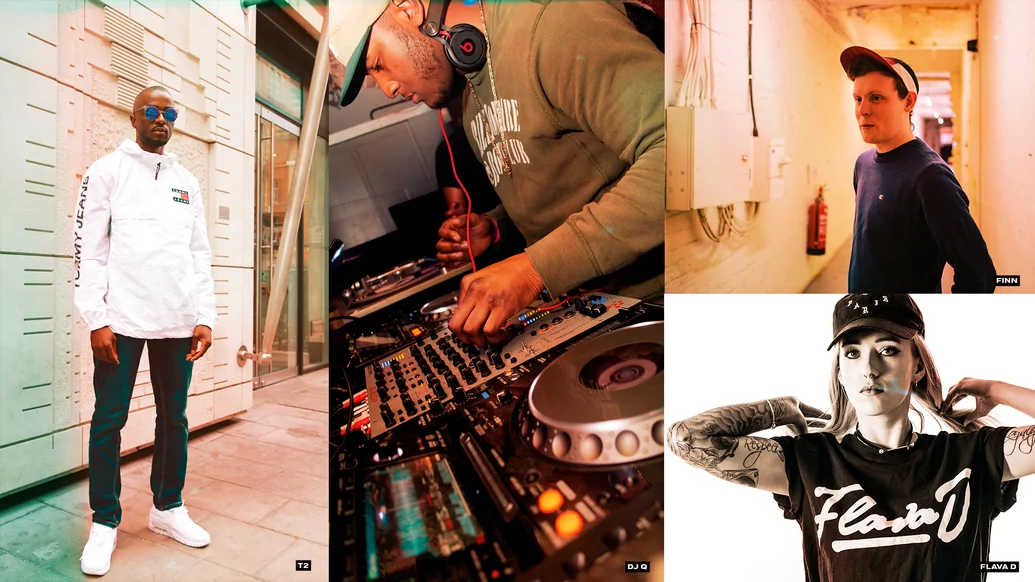
Niche relocated, but problems persisted and the attitude of South Yorkshire Police towards bassline hardened. In late 2009, Niche mark two had its venue revoked. In a move reminiscent of the Metropolitan Police’s use of Form 696 orders to target UK garage and grime events, licence holders in Sheffield were pressured into dropping bassline parties. A vibrant scene was forced from the city of its birth, with important events popping up in smaller Yorkshire towns such as Barnsley, Keighley and Dewsbury, where a weekly party at Sheridans became the focal point of the bassline scene.
At the same time, Niche residents Shaun Banger Scott and Jamie Duggan were effectively banned from playing anywhere in Yorkshire for two years. “I was saying to the police, ‘How can you do this? It’s my living!’” Scott fumes. “I wasn’t someone who was going around selling drugs — I’m just a lad from Barnsley who plays music. I said that to a licensing sergeant, and she said, ‘What about the people who follow you?’ They weren’t following me. They were following the crowd! I knew my crowd. The people outside who were fighting and stabbing each other, I’d never seen them in my life!”
Bassline’s struggles at the turn of the new decade, coupled with the closure of Niche’s third and final venue in late 2011, undoubtedly had an impact on the number of dedicated events taking place. Yet the music not only survived, but thrived. Some of the genre’s sonic trademarks began to appear in other styles, such as jackin’ house, chart-bound dance-pop and the new wave of impossible-to-pigeonhole UK garage mutations; pushed by labels such as Mangoes + Melons, Conducta’s Kiwi Rekords, Elijah and Skilliam’s bassline-friendly Butterz, and Local Action.
There are also countless nostalgia-seeped imprints whose blend of new releases and reissues tap into the entire UKG spectrum — think Timeisnow, Dr Banana and Phone Traxx. This cross-pollination is arguably best exemplified by Royal-T, DJ Q and Flava D’s T Q D project, whose 2017 debut album ‘ukg’ delivered the perfect marriage of bassline, 4/4, grime and two-step.
Crucially, the stigma around bassline has dissipated; where event bookers were once hesitant to book artists due to the much-publicised (but overemphasised) negative aspects of the scene, they’re now keen to book the likes of DJ Q, Flava D and Mr Virgo. Put simply, they can no longer ignore the grassroots support for bassline.
“I think social media has played a big role in that,” Flava D says. “Since 2015 there have been loads of videos getting massive numbers. Social media is a great marketing tool and people who see those videos want to know more about the DJ and this great sound. That spreads the music further. There are huge shows now that just weren’t happening when I started out in 2012.”
So, what now for bassline? Flava D thinks the music itself is better than ever (“the production standards are so high now”), and another boom is around the corner.
“In the 10 years I’ve been DJing I’ve noticed that there’s a new cycle every few years,” she enthuses. “Between 2014 and 2016 there was this wave of bass house from people like Chris Lorenzo, which had connections to the earlier jackin’ house sound and featured filthy warped basses. After that, from 2017, things got boisterous, heavier and more aggressive sonically. Now, I feel like a new cycle is coming.”


